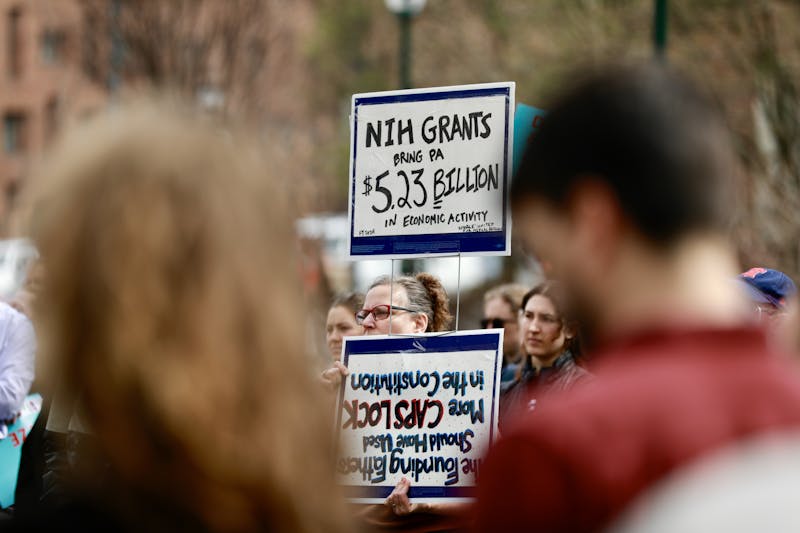A former top official at the National Institutes of Health has been appointed as the new vice provost for research, Provost Robert Barchi announced today. Microbiologist Neal Nathanson, a well-respected researcher who ran NIH's AIDS division, replaces Ralph Amado, who stepped down last winter after five years in the job. "Dr. Nathanson is a world renowned neurobiologist," Barchi said. "I am delighted that he has been willing to come to Penn and join our staff." In his new position, Nathanson -- who was a Medical School vice dean before leaving for the NIH in 1998 -- will oversee the policy and administration of the University's over-$500 million research enterprise. He will also play a role in overseeing clinical research at Penn -- which has received national criticism since the 1999 death of Jesse Gelsinger in a gene therapy trial. Until September, Nathanson -- who will officially assume the position on December 1 -- was the director of the Office of AIDS Research at the NIH. In the past, the vice provost for research has been a part-time position, but Nathanson will assume the post full time. The job has been enhanced, Barchi said, in accordance with Penn's growth as a premier research institution. Nathanson said he was pleased to return to Penn. "I'm a Penn person," he said. "Here is where my heart is and always has been," he said, noting that he is married to Penn Biochemistry Professor Phoebe Leboy. Although Nathanson said he didn't have any specific goals or projects he wanted to tackle, he did emphasize the importance of strengthening Penn's research image. "Our sort of general vision is that we would really like to make Penn be perceived by people here and around the country as one of the finest, best places to do research with an administration that is as supportive as possible," Nathanson said. Nathanson was located by a 13-member search committee of students and faculty, who conducted a nationwide search for a list of final candidates to submit to Barchi. Nathanson will deal with policies surrounding the conduct of research, help in the strategic planning of research and help transfer technology from the laboratory to the commercial sector. Barchi has been pushing to increase the role of the vice provost for research since he took over and began reorganizing the provost's office almost two years ago. "To put this in context, the research enterprise at Penn over the last 10 years has grown from something in the neighborhood of $200 million a year to something well over $500 million a year in sponsored research," Barchi explained. "It is a huge and very complicated business and has become much, much more complicated... especially in research involving animals and in research involving human subjects," he added. And though Nathanson was not at Penn during the controversy surrounding the University's Institute for Human Gene Therapy and the fallout from Gelsinger's death last fall, he said that the turmoil sent him a message about clinical research. "What the Gelsinger case has alerted us to is that there are a number of ways in which we need to be careful about the integrity of research involving human subjects," Nathanson said. He noted that it was important to look at issues of informed consent, institutional review boards and conflict of interest in areas of human research -- all issues that have played prominent roles in the Gelsinger controversy. "There will be a number of changes, hopefully to strengthen the integrity of that whole area. That certainly will be a major part of my agenda," he said.
The Daily Pennsylvanian is an independent, student-run newspaper. Please consider making a donation to support the coverage that shapes the University. Your generosity ensures a future of strong journalism at Penn.
DonatePlease note All comments are eligible for publication in The Daily Pennsylvanian.







